Best places to exchange currency without paying huge fees
You're all set for your trip abroad, and the question comes up: where can I exchange foreign currency? In this article, we'll go through all the options & tips.

Wondering how to use traveler’s checks? Or even if they are the best option to help you spend in foreign currencies when you’re abroad? You’re in the right place.
This guide has all you need to know about where to get traveler’s checks, how to use them, and where they can be cashed. Because traveler’s checks aren’t universally accepted — and can come with some tricky fees — we’ll also introduce some alternatives, including Wise.
Get a Wise Multi-currency Account for free online, and you can make simple ATM withdrawals as you travel, for a far lower fee than using alternative options. More on that later.
| 📑 Table of Contents |
|---|
Traveler’s checks used to be a standard way to access cash when you travel. However, these days, they’re less popular due to other modern ways of getting the foreign currency you need to pay while you’re abroad.
Like regular checks, traveler’s checks are physical paper documents with a monetary value. You can buy traveler’s checks in advance, and then exchange them for cash when you arrive in your destination country. In some cases merchants and tourist venues like hotels might also accept traveler’s checks in place of currency.
Traveler’s checks were popular because they’re more secure than carrying around large amounts of cash. If a traveler’s check is lost or stolen it can be replaced — so you’re not stuck overseas and without access to your vacation money.
However, as alternative methods of getting foreign cash have sprung up, traveler’s checks became less common. This can lead to problems with actually cashing them — as well as higher fees compared to alternative options.
Traveler’s checks aren’t as popular as they used to be, but they can still be a useful resource in some situations:
|
|---|
American Express¹ is the most well known issuer of traveler’s checks these days. You may also find that your bank or credit union can issue traveler’s checks — although many major banks have replaced these with alternative services like prepaid cards. We’ll take a look at some alternatives to traveler’s checks in a moment.
| Learn more about American Express travelers cheques here |
|---|
In most cases you’ll need to visit your bank or an American Express office to buy traveler’s checks. However, some rewards credit cards may allow you to convert your points to traveler’s checks — so it’s worth taking a look at whether that’s an option for you.
American Express has a handy locator tool to let you find local merchants, banks and other facilities to exchange your traveler’s checks wherever in the world you’re headed².
If you find you’re unable to cash your checks — or you just end up with some left over after your trip — you can also redeem them with American Express directly.
It’s worth knowing, though, that this might take a few weeks to get sorted. American Express warns that a delay in excess of 30 days may apply depending on the situation.
|
|---|
|
| ✅ Pros | ❎ Cons |
|---|---|
|
|
Let’s look at the process to get a replacement traveler’s check if you need one. The details below are for American Express checks — however other issuers use similar systems. Make sure you know the process required for replacing your checks before you head off.
|
|---|
We’ve mentioned that traveler’s checks aren’t the most common way to pay when you’re on vacation these days. Let’s take a look at some of the more popular alternatives.
Multi-currency cards are a natural successor to traveler’s checks — you can get an international online account, top up in dollars and then convert to the currency you need in your destination before you even leave home. Like traveler’s checks you’re locking in the exchange rate when you convert — and because you only top up what you need, you can also budget your spending.
Multi-currency cards sit separately to your regular checking account, or your normal credit or debit card. That means that even if your multi-currency card was lost or stolen, there’s no way for criminals to access your primary accounts. Choose a multi-currency card which lets you lock and unlock your card from an app for peace of mind if you can’t find it.
If you’re considering a Multi-currency Account, check out Wise and the Wise Multi-currency Account. Open a Wise international account online, top up and convert your money to whichever currency you need using the mid-market exchange rate with no markups. Here’s what you need to know:
|
|---|
One way to avoid traveler’s checks is to carry cash — either in US dollars to exchange on arrival, or in the destination currency. This comes with some inherent risks. Cash is very attractive to thieves, and can’t be replaced if stolen. If you carry US dollars you’ll still have the hassle of exchanging it when you arrive — eating into precious vacation time and possibly losing out if you get hit by high fees or poor exchange rates.
That said, carrying cash in the destination currency does offer convenience — and there are some times you simply can’t get by without some ready money on hand.
It’s not a great way to carry all your travel money, but having some cash on hand can still be a useful tool.
Like multi-currency cards, prepaid cards let you buy foreign currency in advance, load it onto a card, and then spend or withdraw it when you arrive at your destination. Many banks and exchange services offer prepaid cards, and they do come with many of the advantages of multi-currency cards, including convenience and enhanced security versus cash or credit cards.
The main downsides of prepaid cards are typically the fees, and the lack of flexibility compared to a multi-currency card. Check whether you can load more than one currency onto your card if you’re choosing prepaid — and look carefully at the costs to add, withdraw, and spend. Some cards also come with monthly service fees, or inactivity fees — check the terms and conditions carefully.
Spending abroad with your regular credit or debit card is a familiar and easy option. You’ll be able to use your card just as you would at home — as long as your network is accepted in your destination country. It’s worth noting that Visa and MasterCard have the biggest global acceptance, with American Express slightly less common, and Discover not often available in some parts of the world.
Credit and debit cards come with a couple of key drawbacks — fees and security. Many cards add a foreign exchange fee which can mean all your purchases overseas are 2-3% more costly than you expect. Cash advance fees also apply on credit card ATM withdrawals, which can be very expensive. Then there’s the risk that your cards are lost, stolen or cloned when you’re away. If thieves get your main account details your funds may be stolen before you even realise your card is missing.
Let’s look at some common questions — and the answers you need to know.
Traveler’s checks are still issued and used — but they’re far less common now than in the past. Check whether there are places to cash and redeem your checks near your destination before you buy them.
How much it costs to use your traveler's checks can vary based on where you’re cashing or spending them. There is usually a fee to pay — which you’ll want to look at in advance before you travel.
Traveler’s checks usually do not expire, so you can cash or redeem them at any time.
Traveler’s checks are not as common as they used to be, but that doesn’t mean there’s no place for them.
The most important thing for most travelers is that you have a range of ways to pay, so that there’s a backup if your preferred method is lost, stolen or not accepted. That might mean you travel with some cash, a multi-currency card, and your credit card as a fall back. Or you might choose to hold a few traveler’s checks alongside any of the other methods outlined above to give you flexibility and mean you can enjoy your break no matter what happens.
| 💬 Still curious about traveler’s checks? Check these articles out! |
|---|
Sources checked on 09.09.2021
*Please see terms of use and product availability for your region or visit Wise fees and pricing for the most up to date pricing and fee information.
This publication is provided for general information purposes and does not constitute legal, tax or other professional advice from Wise Payments Limited or its subsidiaries and its affiliates, and it is not intended as a substitute for obtaining advice from a financial advisor or any other professional.
We make no representations, warranties or guarantees, whether expressed or implied, that the content in the publication is accurate, complete or up to date.

You're all set for your trip abroad, and the question comes up: where can I exchange foreign currency? In this article, we'll go through all the options & tips.
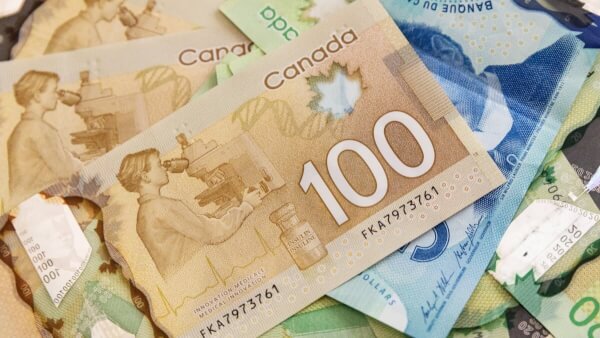
Heading abroad? Here’s everything you need to know about ordering Canadian dollars in the US.
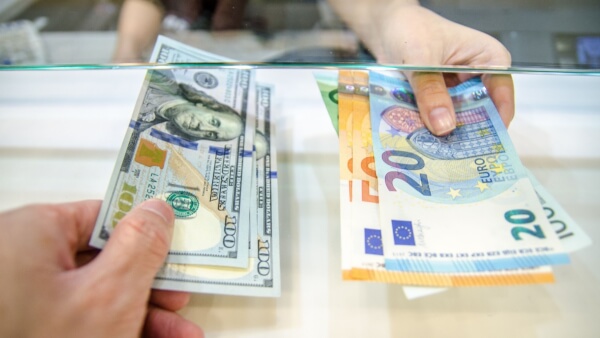
Going abroad and in need of foreign currency? In this article, we'll explore where to exchange currency - from good deals to the places you should avoid.
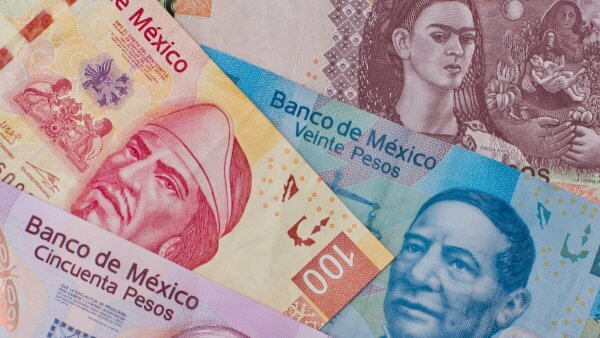
Heading abroad? Here’s everything you need to know about ordering pesos with Chase bank.
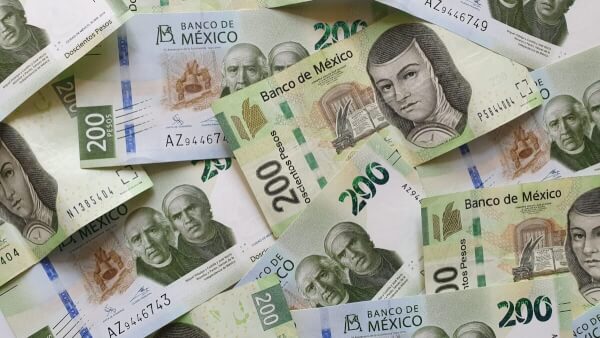
Heading abroad? Here’s everything you need to know about ordering pesos with Wells Fargo.
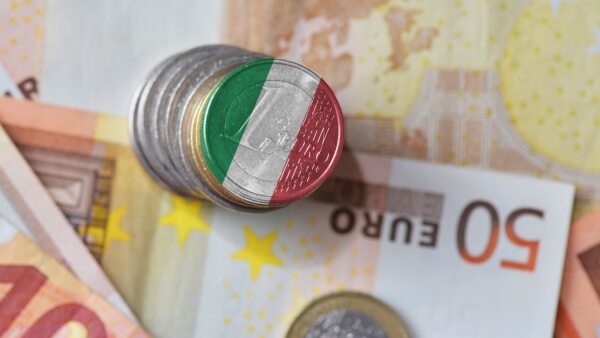
Heading abroad? Here’s everything you need to know about ordering euros with Bank of America.